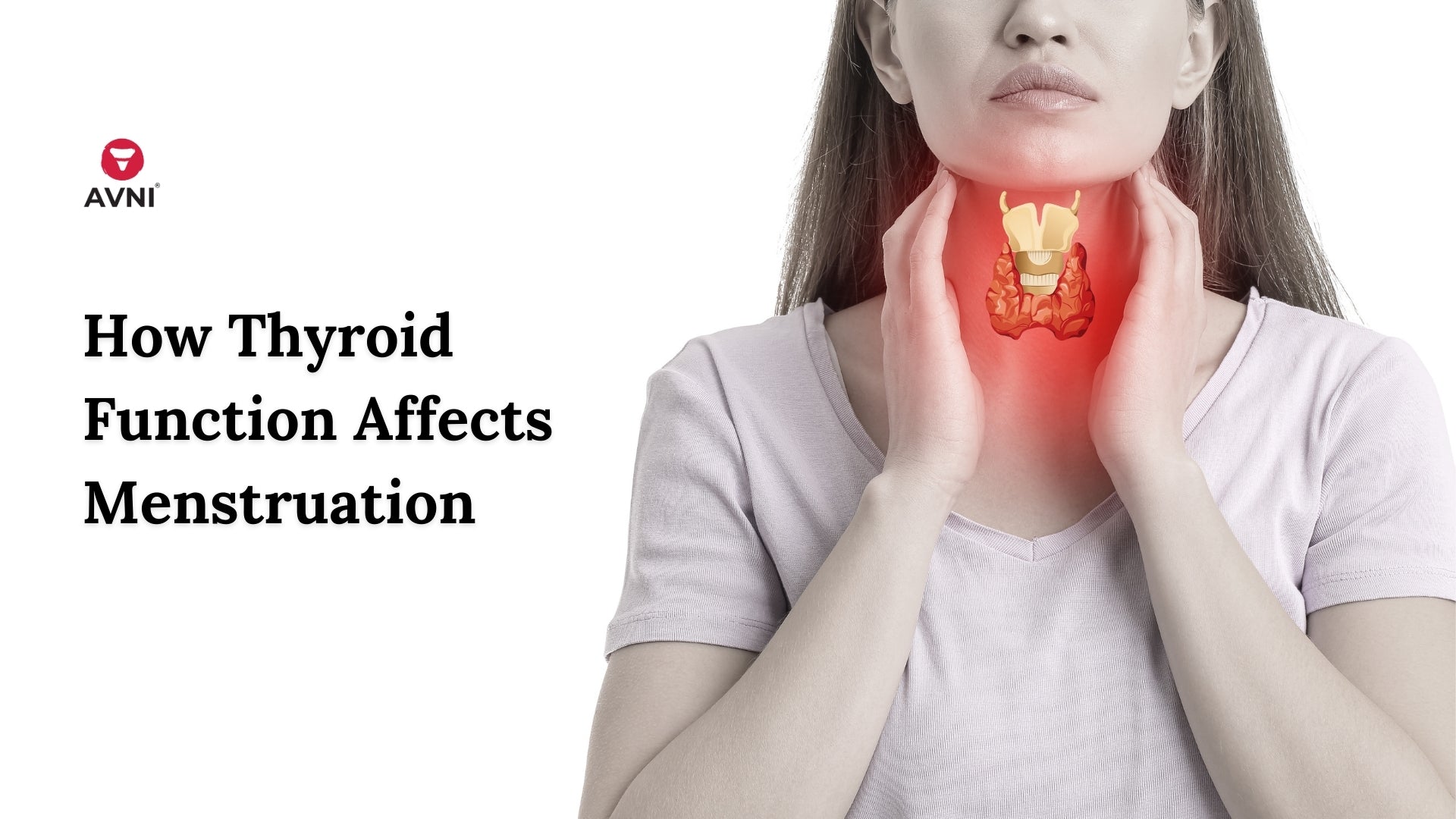
How Thyroid Function Affects Menstruation
There is a growing number of women struggling from thyroid disease, but with the prevalence of hormonal imbalance, it's difficult to determine what's causing your symptoms. "Thyroid health" affects men and women differently.
Find out in this article about how thyroid function can affect menstruation, and what you can do to manage it.
What is the Thyroid?
The thyroid is a butterfly-shaped gland present at the base of the front neck that produces thyroid hormones that regulate metabolism, heart rate, and body temperature.
Therefore, thyroid disease can cause problems with the heart, weight and other respective functions. These can also affect menstrual cycles and fertility, leading to irregular periods, heavy bleeding, or no periods at all.

Treatment for thyroid disease can help to restore normal menstrual cycles.
Types of Thyroid Disorders
There are four main types of thyroid disorders: Hashimoto's disease, Graves' disease, hyperthyroidism, and hypothyroidism.
- Hashimoto's disease is an autoimmune disorder that attacks the thyroid gland and prevents it from producing enough hormones. This can lead to hypothyroidism.
- Graves' disease is another autoimmune disorder that causes the thyroid gland to produce too much hormone. This can lead to hyperthyroidism.
- Hyperthyroidism (too much thyroid hormone) is a condition in which the thyroid gland produces too much hormone.
- Hypothyroidism (too little thyroid hormone) is a condition in which the thyroid gland doesn't produce enough hormone.
In addition to its effects on ovulation and menstruation, thyroid disease can also cause other changes in a woman’s reproductive system. For example, hyperthyroidism may lead to premature ovarian failure, while hypothyroidism may cause uterine fibroids or endometriosis.

How does Hypothyroidism Affect Menstruation?
Hypothyroidism can cause a number of changes to the menstrual cycle. This can cause irregular periods, light periods, or no period at all. Hyperthyroidism can cause amenorrhea (absence of menstruation) by interfering with the release of eggs from the ovaries (ovulation). It can also cause heavier than normal bleeding during menstruation.
While these changes can be frustrating, they are usually not harmful and do not indicate any underlying health problems. However, if you are concerned about the changes to your menstrual cycle, speak to your doctor. They will be able to advise you on whether or not further investigation is necessary.
How does Hyperthyroidism Affect Menstruation?
Hyperthyroidism can have a significant impact on a woman’s menstrual cycle. It can cause irregular periods, lighter or heavier bleeding than usual, and can even lead to amenorrhea (absence of periods).
The most common symptom of hyperthyroidism is an elevated heart rate, which can also lead to increased blood flow during menstruation. This can result in heavier and/or more prolonged bleeding. In some cases, hyperthyroidism can also cause anovulation (failure to ovulate), which can further impact the regularity of menstrual cycles.
While hyperthyroidism can have a significant impact on menstruation, it is important to remember that each woman experiences the condition differently. Some women may only experience mild symptoms, while others may have more severe symptoms that require medical intervention. If you are concerned about how hyperthyroidism is affecting your menstrual cycle, be sure to speak with your doctor for further guidance.

Treatments and Care
Your doctor will help you understand your thyroid issue and also recommend the appropriate treatment. Some of the options are:
Radioactive iodine: A treatment that directly kills the thyroid cells in order to prevent excessive hormonal production.
Disclaimer: Before consuming any medication in any form, please consult a licensed doctor.
Conclusion
Thyroid disease can cause problems with menstrual cycles by affecting the production of hormones needed for ovulation. In some cases, thyroid disease can also lead to infertility.
If you have been diagnosed with thyroid disease and are having difficulty conceiving, talk to your doctor about treatment options that can help you conceive.



Leave a comment
This site is protected by hCaptcha and the hCaptcha Privacy Policy and Terms of Service apply.